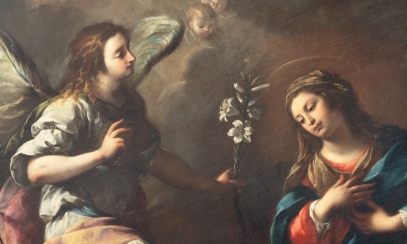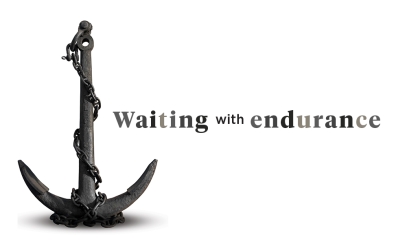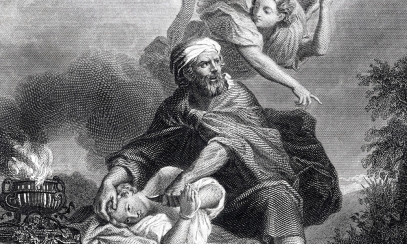
In the world, or of it?
Something has been puzzling me of late. As Catholics, precisely as Catholics, should we see ourselves more as partners with others in our society or more as a leaven in that same society?
Ever since our first American bishop, John Carroll of Baltimore, back in the 1790s, we Catholics have tried to fit in, to contribute, to be a part of the great American experiment in democracy. We even continued to work at this when we were being hassled and attacked by groups such as the Know-Nothings, the American Protective Association, Ku Klux Klan, and Protestants and Other Americans United for the Separation of Church and State.
We maintained this posture for two reasons, it seems to me. First of all, we did not want to appear to be un-American and thus give credibility to the anti-Catholics in our midst. Second, we really believed there was a great deal in common between the truths of our faith and what largely Protestant America stood for.
Partnering then with our society to achieve that American vision made a lot of sense. However, the puzzle for me now is this: Have we reached a point where what America actually does, rather than what it stands for, makes our partnering become a kind of sell-out of our Catholic principles?
Is a society that promotes abortion on demand, which seeks to undermine marriage, which does not enable parents to choose the best means of educating their children, which seems to view children as commodities to be produced in test tubes, which seems unable to recognize the value of having a father and mother in the family, which moves toward assisted suicide, which cannot seem to find alternatives to the death penalty, which promotes a contraceptive mentality, which cannot seem to care for the mentally ill, the uninsured, the immigrant, and the poor – is such a society one in which we can consider ourselves, precisely as Catholics, to be partners? Or, instead, should we more see ourselves as leaven?
What would the difference be? Perhaps what it would mean for us Catholics is that we should see ourselves more as the loyal opposition. This does not mean that we are allowed to fall into a position of being merely nay-sayers. Rather, this means that we must always be offering our two cents (which, based on the Gospel, is of much more value than that) to try to change the direction of our society. This also means that we must consciously become examples of correct living, demonstrating joy at being sons and daughters of God and brothers and sisters of Jesus Christ. And, of course, this means that we pray. Jesus, in the Sermon on the Mount, stated: “Let your light so shine before men, that they may see your good works and give glory to your Father, who is in heaven.” (Mt 5:16. Perhaps this should be our general approach. Instead, up until now, we have tended to focus more on a political approach. That works when we are all in agreement on general principles. However, in the present circumstances, we Catholics seem very much to be going against the tide.
However, it is probably very much the case that we still need to do both, to partner with a society and country we love when we can, in good conscience, do so, and be more the strangers in a foreign land when we recognize that what happens around us is contrary to the Gospel. Jesus himself reminded us that his kingdom is not of this world (Jn 18:36), that he has called us to be in the world, but not of the world. (Jn 15:18; 17:16-18) St. Paul reminds us that our citizenship is in heaven. (Ephesians 3:20) It is still puzzling how all this is to work out, but let us pray for the guidance of the Holy Spirit as we seek to be salt for the earth and light for the world.



